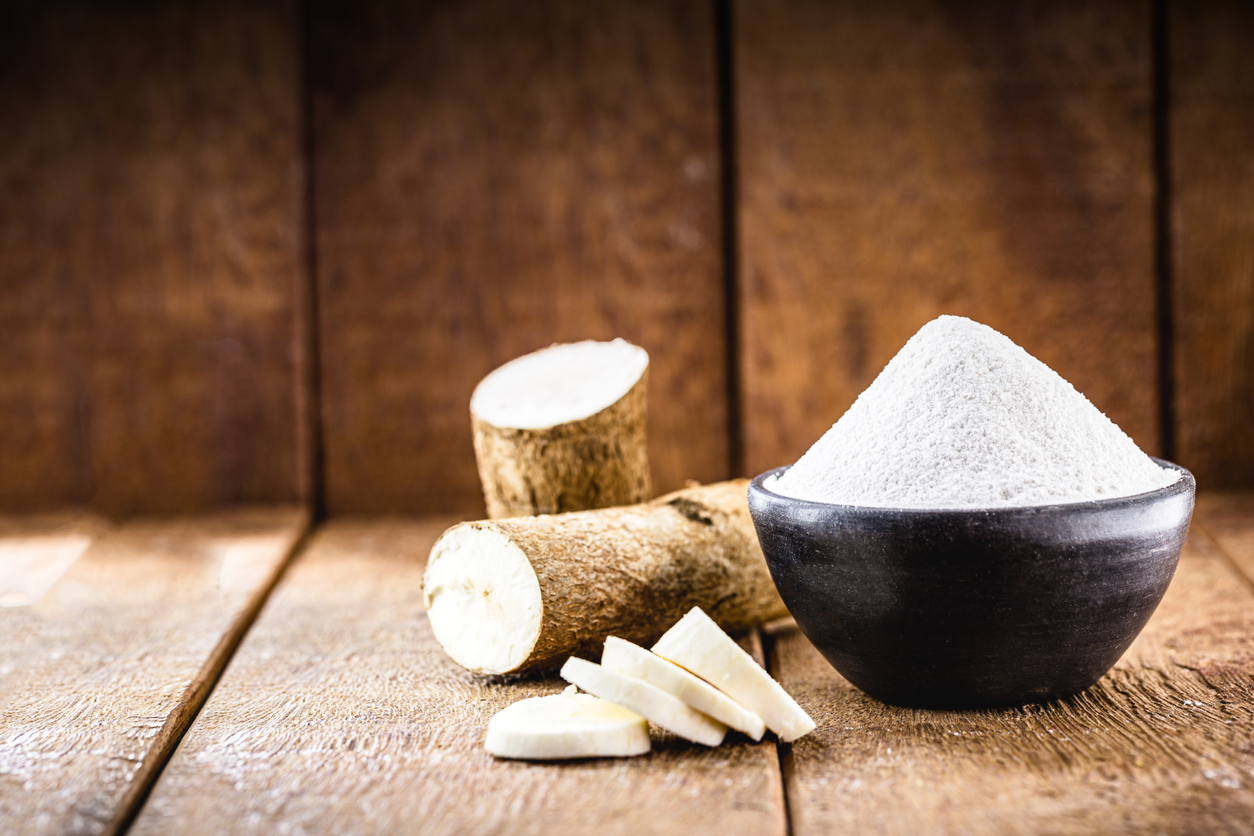Tapioca Starch vs. Potato Starch: Differences, Uses, and Benefits
Starches are essential ingredients in cooking, baking, and industrial applications, with tapioca starch and potato starch being two of the most commonly used. While both are gluten-free and used as thickeners, they have distinct properties that make them suitable for different applications.
This guide compares tapioca starch vs. potato starch, highlighting their differences, benefits, and the best ways to use them.
1. Overview: What Are Tapioca Starch and Potato Starch?
Tapioca Starch
- Source: Extracted from the cassava root (Manihot esculenta).
- Appearance: Fine, white powder.
- Texture: Light and smooth, gives a chewy or elastic texture.
- Common Uses: Thickening soups and sauces, gluten-free baking, bubble tea pearls, crispy coatings.
Potato Starch
- Source: Derived from potatoes through a drying and refining process.
- Appearance: Fine, white powder.
- Texture: Soft, with high water absorption capacity.
- Common Uses: Moisture retention in baking, thickening gravies, sauces, and soups, frying coatings for a crispy finish.
2. Key Differences: Tapioca Starch vs. Potato Starch
| Feature | Tapioca Starch | Potato Starch |
|---|---|---|
| Source | Cassava root | Potatoes |
| Texture | Light, smooth, and elastic | Soft, powdery, absorbs water quickly |
| Appearance | White, slightly glossy when mixed with liquid | White, matte in liquid |
| Taste | Neutral, slightly sweet | Neutral, no flavor |
| Thickening Power | Moderate | High |
| Freeze-Thaw Stability | Excellent – does not break down in freezing | Weak – may become watery after freezing |
| Best for Frying | Creates light, crispy texture | Extra crispy and golden brown coating |
| Best for Baking | Adds chewiness (e.g., in gluten-free bread) | Keeps baked goods moist and tender |
| Common Uses | Bubble tea, gluten-free flour, sauces, soups, frying | Moisture retention in baked goods, thickening soups, frying |
3. Which Starch Should You Use?
Use Tapioca Starch If You Want:
✅ A smooth, elastic texture – Ideal for gluten-free baking (bread, cookies, cakes).
✅ A starch that withstands freezing – Perfect for frozen sauces, soups, and desserts.
✅ Crispiness without heaviness – Used in frying coatings for a light crunch.
✅ Chewiness in food – Essential in making bubble tea pearls, tapioca pudding, and mochi.
Use Potato Starch If You Want:
✅ A thicker, more absorbent starch – Great for thickening sauces and gravies.
✅ A starch that locks in moisture – Helps baked goods stay soft and fresh.
✅ A crispy, golden crust – Ideal for fried foods like chicken, tempura, and fries.
✅ A starch that tolerates high heat – Performs well in deep-frying applications.
4. Can You Substitute Tapioca Starch for Potato Starch?
Yes, but with adjustments:
- If substituting tapioca starch for potato starch, use 1.5 times more tapioca starch to get the same thickening effect.
- If replacing tapioca starch with potato starch, reduce the amount slightly, as potato starch thickens faster.
- For frying, potato starch gives a crispier texture, but tapioca starch can work if mixed with cornstarch.
5. Conclusion: Which Is Better?
Both tapioca starch and potato starch are excellent gluten-free thickeners, but the best choice depends on your needs:
- Choose Tapioca Starch for chewiness, elasticity, and freeze stability (best for desserts, gluten-free baking, and bubble tea).
- Choose Potato Starch for moisture retention, crispiness, and stronger thickening (best for frying, gravies, and baking).
Looking for high-quality tapioca starch or potato starch in bulk? Wigmore Trading provides wholesale supply and export solutions. Contact us today for competitive pricing and fast delivery!








Comments are closed.